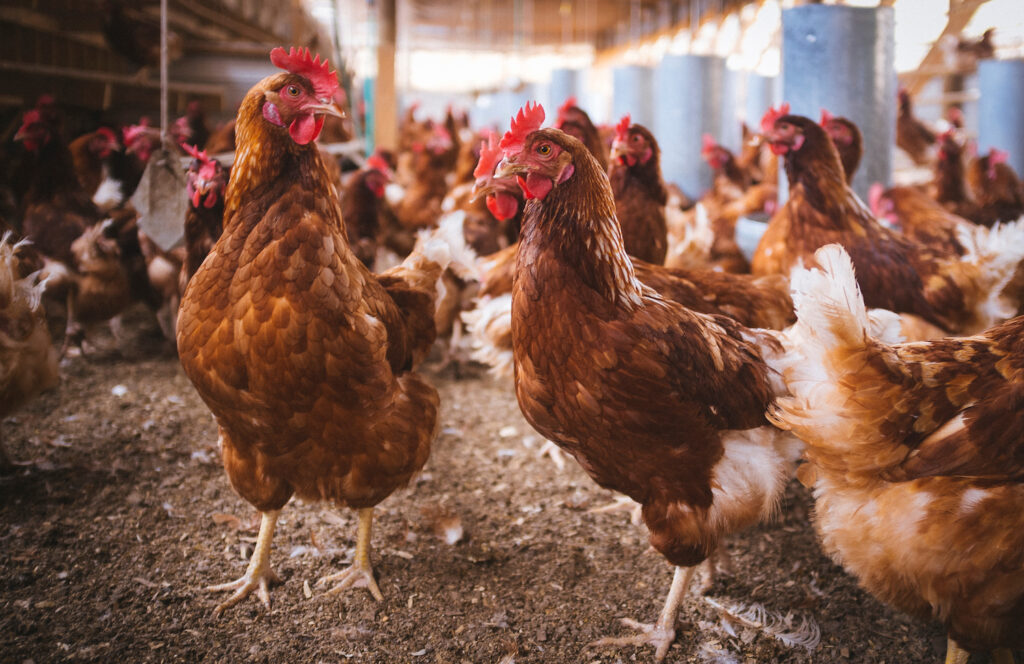Bird housing order imposed across England to curb avian flu
31st October 2022
The national risk of avian influenza in wild birds has been increased to ‘very high’.
The UK’s chief vet has made it a legal requirement for all poultry and captive birds in England to be housed from 00.01 on 7th November. All bird keepers are also required to follow stringent biosecurity measures.
Mandatory housing measures were already in force in the hot spot areas of Suffolk, Norfolk and parts of Essex.
The decision to expand this to the whole of England was made after the national risk of bird flu in wild birds was upgraded to ‘very high’. Additionally, the disease has now been detected at over 70 premises since the beginning of October, as well as multiple reports in wild birds.
Since late October 2021, there has been over 200 confirmed cases across the UK in total – the largest ever outbreak.
Chief vet Christine Middlemiss is encouraging all bird keepers across England to use the next week to prepare, including taking steps to safeguard animal welfare, consult their private vet and expand housing where necessary.
Ms Middlemiss said: “We are now facing this year, the largest ever outbreak of bird flu and are seeing rapid escalation in the number of cases on commercial farms and in backyard birds across England. The risk of kept birds being exposed to disease has reached a point where it is now necessary for all birds to be housed until further notice.
“Scrupulous biosecurity and separating flocks in all ways, from wild birds remain the best form of defence. Whether you keep just a few birds or thousands, from Monday 7th November onwards you must keep your indoors. This decision has not been taken lightly, but is the best way to protect your birds from this highly infectious disease.”
Evidence shows that housing birds reduces the risk of kept birds being infected with bird flu, Defra says. However, housing alone will not protect birds and all keepers must still follow the other enhanced biosecurity measures, mandated by the AIPZ, at all times to protect their flocks and prevent the risk of future outbreaks.
The AIPZ, which was brought in earlier this month, requires all bird keepers to take extra precautions, such as: restricting access for non-essential people on site, ensuring workers change clothing and footwear before entering bird enclosures and cleaning and disinfecting vehicles regularly to limit the risk of the disease spreading.
All bird keepers across England must:
- House or net all poultry and captive birds
- Cleanse and disinfect clothing, footwear, equipment and vehicles before and after contact with poultry and captive birds – if practical, use disposable protective clothing
- Reduce the movement of people, vehicles or equipment to and from areas where poultry and captive birds are kept, to minimise contamination from manure, slurry and other products, and use effective vermin control
- Keep records of mortality, movement of poultry and poultry products and any changes in production
- Thoroughly cleanse and disinfect housing on a continuous basis
- Keep fresh disinfectant at the right concentration at all farm and poultry housing entry and exit points
- Minimise direct and indirect contact between poultry and captive birds and wild birds, including making sure all feed and water is not accessible to wild birds
- Prevent access by poultry to ponds and watercourses and ensure that birds are kept in fenced or enclosed areas.
Defra has also set out practical guidance to support land managers, the public and ornithological and environmental organisations in their response to the growing threat of avian influenza to wild birds.
The ‘Mitigation Strategy for Avian Influenza in Wild Birds in England and Wales’ sets out how these groups, together with the government and its delivery partners, can mitigate the impact of avian influenza on wild bird populations whilst protecting public health, the wider environment and the rural economy.
For more information visit GOV.UK/bird-flu

